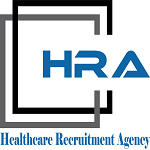CV Coaching
As a trusted partner for organisations striving to meet Care Quality Commission (CQC) and Ofsted standards, CQC Jobs excels in the identification, attraction, and retention of qualified professionals dedicated to delivering exceptional care and education. Our expertise ensures employers consistently achieve and maintain compliance with CQC and Ofsted requirements, supporting high standards across both health and educational settings throughout the UK.
Best Practices for Optimising a Healthcare CV for UK Candidates
In the competitive UK healthcare job market, having a well-structured and compelling CV is crucial for standing out to recruiters and hiring managers. Whether you’re applying for a position with CQC, Ofsted or NHS / Private healthcare companies, your CV must clearly communicate your qualifications, experience, and suitability for the role. This guide outlines key best practices to optimise your CV, ensuring it meets the expectations of healthcare employers in the UK.
- Tailor Your CV to the Role
One of the most important steps in optimising your CV is to tailor it to the specific job you are applying for. Generic CVs are less likely to stand out, especially in healthcare where each role has distinct requirements and expectations.
- Review the Job Description: Carefully read the job description and highlight key skills, qualifications, and experiences the employer is looking for. For example, if a role emphasises experience in elderly care or critical care, ensure those aspects of your background are prominently featured on your CV.
- Use Keywords: Healthcare recruiters often use Applicant Tracking Systems (ATS) to screen CVs. Ensure that you use relevant keywords from the job listing (e.g., “patient care,” “clinical governance,” “medication administration”) throughout your CV to increase the chances of passing the ATS screening process.
- Highlight Relevant Experience: If you have a broad range of experience, prioritise the most relevant ones. For example, if you are applying for a community nurse role but also have hospital-based experience, make sure to emphasise your community healthcare experience first.
- Use a Clear and Professional Format
In the healthcare sector, clarity and professionalism are paramount. Your CV should be easy to read, well-organised, and free from unnecessary embellishments.
- Choose the Right Layout: A reverse chronological format is the most common and effective for healthcare CVs. Start with your most recent role and work backwards, allowing recruiters to see your latest and most relevant experience first.
- Section Headers: Use clear section headers such as “Professional Experience,” “Education,” “Skills,” and “Certifications.” This makes it easy for hiring managers to navigate your CV and find the information they need quickly.
- Font and Spacing: Use a professional font such as Arial, Calibri, or Times New Roman, and ensure your CV is well-spaced with consistent font size (typically 10–12 points). Avoid using bold or italics excessively, as this can make the document look cluttered.
- Length: For healthcare professionals, a CV should typically be no longer than two pages. However, for more senior or specialised roles, particularly in clinical practice or academia, a longer CV may be necessary to include detailed qualifications, research, or publications.
- Start with a Strong Personal Statement
A personal statement (or professional summary) at the top of your CV is your chance to make a strong first impression. This brief section (no more than 4–5 sentences) should summarise who you are, your key qualifications, and what you are seeking in your next role.
- Be Specific: Avoid generic statements like “I am a hardworking healthcare professional.” Instead, mention your specific qualifications, years of experience, and the type of role or setting you are looking for.
Example:
“A highly experienced Registered Nurse with over 10 years of expertise in acute care, specialising in emergency and critical care settings. Adept at delivering high-quality patient care in fast-paced environments. Seeking to contribute my skills to the A&E department at a leading NHS Trust.”
- Tailor to the Job: If the role you are applying for emphasises leadership, patient care, or research, reflect those priorities in your personal statement. Show that you understand what the employer is looking for and how you fit those needs.
- Emphasise Healthcare Skills and Competencies
The skills section of your CV should clearly list both your clinical and transferable skills relevant to the role.
- Clinical Skills: List specific skills that match the job requirements, such as “intravenous medication administration,” “wound management,” or “cardiac monitoring.” Be sure to mention any specialties you have, such as paediatrics, oncology, or mental health.
- Transferable Skills: In addition to clinical expertise, highlight essential skills like communication, teamwork, leadership, and problem-solving, which are crucial in any healthcare role. If you have experience managing multidisciplinary teams or improving patient care processes, make sure to include that.
- Technical Skills: If you are familiar with specific healthcare technologies, such as Electronic Health Records (EHR) systems, be sure to include them. This is increasingly important in a digitised healthcare system.
- Detail Your Professional Experience
Your work experience section is the heart of your CV. Each job entry should provide clear and concise details about your responsibilities, achievements, and impact in previous roles.
- Job Titles and Dates: Clearly state your job title, the name of the employer, and the dates of employment. If relevant, also include the type of healthcare setting (e.g., NHS Trust, private hospital, community care).
- Responsibilities: Provide a short, bulleted list of your core duties, ensuring you emphasise key clinical tasks relevant to the role you are applying for.
Example:
- Administered medications and treatments as prescribed, ensuring adherence to safety protocols.
- Monitored patient vitals and provided critical care to patients in ICU.
- Collaborated with multidisciplinary teams to create and implement patient care plans.
- Achievements: Wherever possible, quantify your achievements to demonstrate the value you added in your previous roles. For example, mention the number of patients you cared for, how you improved care outcomes, or any specific initiatives you led.
Example:
- Successfully reduced medication administration errors by 20% through the implementation of a new protocol.
- Managed caseload of 30+ patients daily in a busy outpatient setting, consistently receiving positive patient feedback.
- List Relevant Education and Qualifications
Healthcare employers in the UK will be particularly interested in your formal qualifications and certifications.
- Degrees and Diplomas: List your relevant educational qualifications, starting with the most recent. Include the name of the institution, the degree obtained (e.g., BSc Nursing, MBBS), and the dates of attendance.
- Professional Registration: Ensure that your professional registration is clearly listed. For example, if you are a nurse or doctor, include your NMC (Nursing and Midwifery Council) or GMC (General Medical Council) registration number.
- Additional Certifications: If you have any additional certifications that are relevant to the job (e.g., Advanced Life Support (ALS), Mental Health First Aid, or Safeguarding Training), list them in this section.
- Include Continuing Professional Development (CPD)
Healthcare is a dynamic field, and employers appreciate candidates who are committed to ongoing learning. Include a section on Continuing Professional Development (CPD) to highlight any relevant training, workshops, or courses you have completed.
- Relevant Courses: List any additional training, such as leadership development, infection control, or specialised clinical skills, that demonstrates your commitment to improving your professional practice.
- Proofread and Get Feedback
Before submitting your CV, it’s essential to proofread it carefully to ensure there are no spelling or grammar errors. Healthcare is a detail-oriented profession, and errors on your CV can create a negative impression.
- Get Feedback: It’s also beneficial to have a mentor, colleague, or recruitment consultant review your CV. They can provide valuable insights and identify areas where improvements can be made.
Conclusion
Optimising your healthcare CV for the UK job market involves more than just listing your qualifications and experience. By tailoring your CV to the specific role, highlighting relevant skills, and presenting your experience clearly, you can significantly increase your chances of standing out in a competitive field. Focus on demonstrating your clinical expertise, professional achievements, and commitment to high-quality patient care, and you’ll be well on your way to securing your desired healthcare position.
Book Your CQCJobs.com Discovery Consultation
Take the first step towards transforming recruitment for your care home or domiciliary service with CQCJobs.com. As a care home manager, HR professional, or senior leader in healthcare, you understand the importance of quality staffing, compliance, and reliable recruitment. We’re here to help you overcome staffing challenges and secure high-calibre candidates across the UK.
Our discovery call is more than just a conversation—it’s a focused, one-to-one consultation dedicated to understanding your service’s specific needs, exploring tailored solutions, and demonstrating how we can directly support your organisation. If you’re facing persistent vacancies, want to strengthen your compliance, or simply need a faster, more reliable way to recruit, our experienced team is ready with practical advice and proven strategies.
Why book a discovery call with us?
- Gain practical insights into our healthcare-focused recruitment methods
- Find out how our rigorous screening and retention processes support CQC compliance
- See how our partnership can save your service both time and resources
There’s no obligation and no fee—just the opportunity to explore how we can help your care setting build a more resilient and compassionate team.
Book your free discovery call today and take the next step towards confident, CQC-compliant recruitment.
Register Now for Free Healthcare Recruitment Support
For exceptional healthcare recruitment CQCJOBS.com enables employers to access rigorously vetted healthcare candidates, ensuring vacancies are filled promptly and to the highest professional standards. Experience confidence, peace of mind, trust, and excellence—start with a free trial today. Submit your details below to arrange a conversation with a dedicated recruitment consultant and discover how CQCJOBS.com can transform your healthcare recruitment process.
Partner with the Hiring Manager, where innovation and data-driven insights redefine recruitment. Operating across several strategic sites, we blend the power of comprehensive candidate data with our industry expertise to connect you with top-tier talent that aligns perfectly with your business needs. Our access to extensive internal and external candidate networks ensures a rapid, precise match, reducing hiring times, increased diversity and enhancing retention rates. Our work is to bring you not just candidates, but transformative professionals who drive growth and innovation. Choose Hiring Manager and advance your recruitment process to stay ahead in today’s competitive market.































